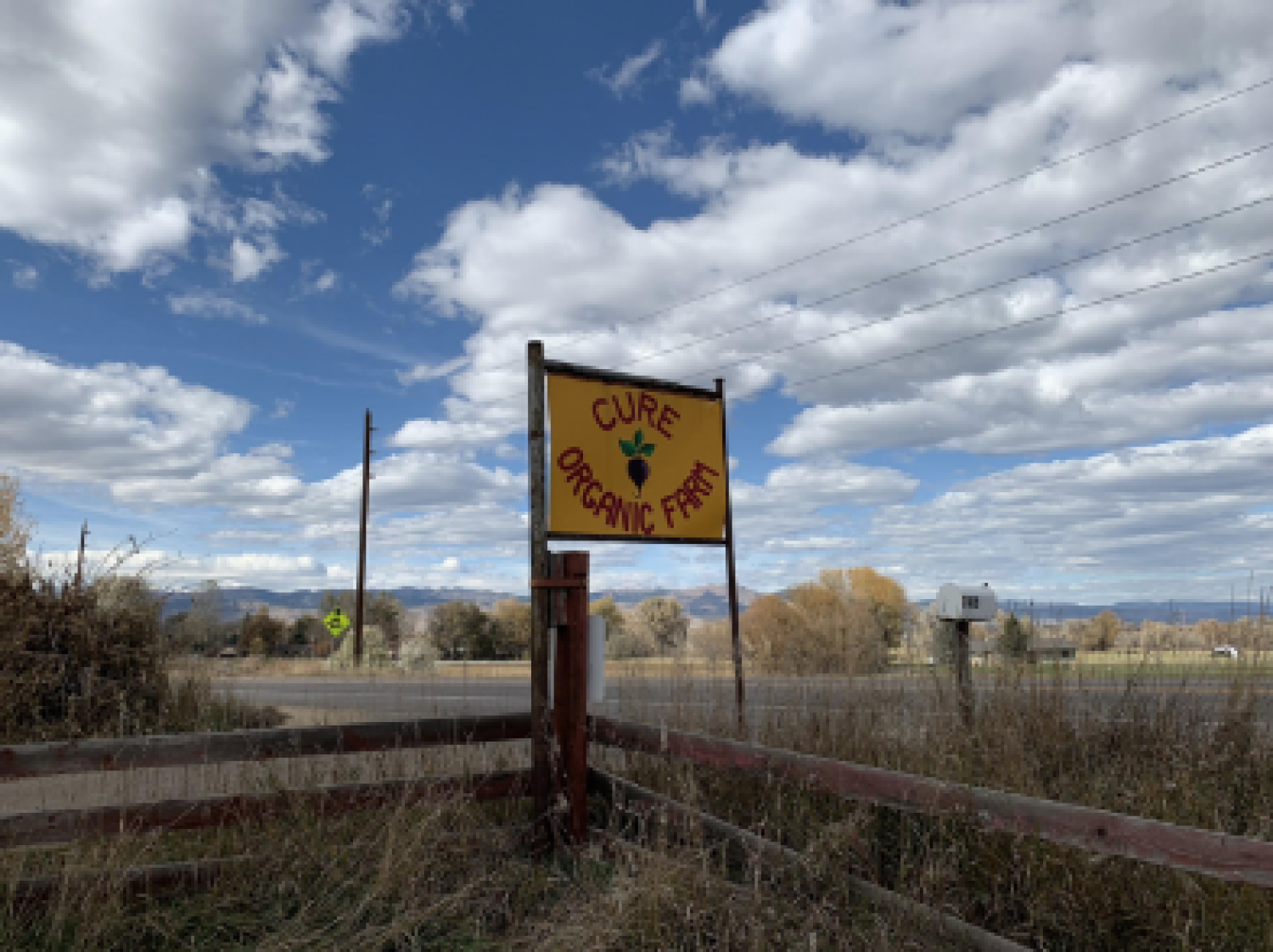In the Club: Cure Organic Farm Trek

On a crisp fall afternoon, the Organics and Naturals Club took a 15 minute ride from Koelbel to tour Cure Organic Farm, a commercial family farm growing over 100 varieties of vegetables, herbs and flowers on just 15 acres of land in east Boulder (what?!). We were fortunate enough to meet up with the farm manager herself/all-around rock star, Anne P. Cure, and get a tour of her beautiful farm.
We started out discussing the history of the area and farm and all the trials and tribulations that went into its creation. Moral of the story here: local politics and laws are important! One incredible fact about the farm is that all of the crops grown “are distributed within 50 miles of the farm through a CSA program, to local restaurants, farmers markets and [our] farm store on site.” Talk about supporting your community!
As we strolled through the grounds and fields, we came upon several animals: chickens, a bunch of newborn chicks, goats, a Berkshire pig and honey bee hives. All of the pasture-raised animals are integral to the success of the farm via holistic animal management and rotational grazing to restore nutrients to the soils and fields. Hoop houses are also an important feature on the farm which help propagate crops as well as extend the growing season for certain crops and flowers.
Being excellent business students, we asked Anne all types of questions ranging from organic policy to farm business models, efficient crop management to product margins and costs, statistical analysis to the dynamics of farming competitors. It was a robust discussion while strolling through a beautiful farming oasis.
The farm is always looking for volunteers to help out starting in the spring, but if you want to keep your soft hands soft, you can always sign up for their CSA program as early as January, with crops ready to pick up starting in June! We all left the farm with a better appreciation for where our food comes from, the intricacies involved to feed a population and handfuls of kale, apples and cider from the farm store.







